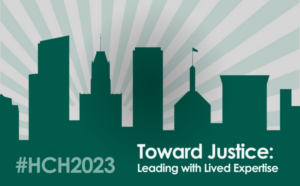Collecting patients’ Sexual Orientation and Gender identity (SOGI) information is recognized as a key aspect of providing holistic, patient-centered health care. It is an intervention that fosters retention in care for gender and/or sexual minority patients who often feel unconnected and invisible to health care providers who have no knowledge of their patients’ gender identity and/or sexual orientation. It also enables health care practices to identify health care disparities among gender and/or sexual minority patients as compared with those of their cisgender heterosexual counterparts and then to tailor interventions to address these disparities. For health care entities that receive federal funds, collecting SOGI information is now mandatory. However, there may exist multiple barriers that negatively impact the ability to reliably collecting SOGI information in a health care setting, especially in the setting of serving a population experiencing homelessness.
This presentation aims to describe a multi-pronged approach to addressing low SOGI data collection rates within a federally qualified health center serving a population experiencing homelessness. Some examples of the strategies we discuss include adding SOGI data collection to our quality measures, sending patient messages via the EMR portal, staff education, utilizing volunteers for patient outreach, and offering patients the option to fill out a SOGI form on their own in the waiting room. We present our best practices in hope that the information is applicable in other HCH settings.
Speakers: Sanju Nembang: Boston Health Care for the Homeless Program; Pam Klein: Boston Health Care for the Homeless Program
Session Materials:


